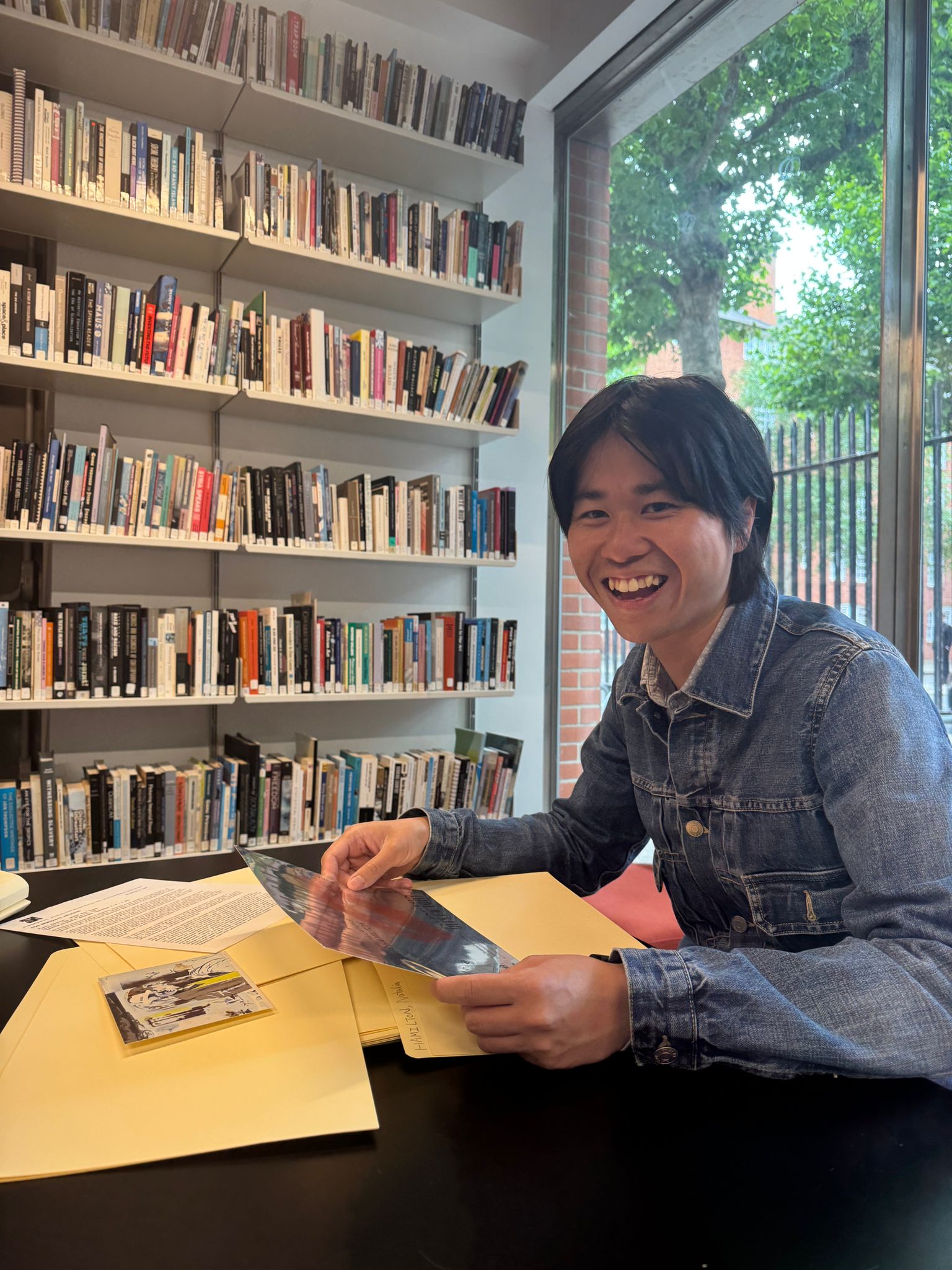 In February 2024, during the third year of my PhD study at UCL, I began volunteering at iniva. My first task involves organising artists’ files: I have to review each one, take notes on what was inside, and then repackage them into new, sturdier folders designed to withstand ageing. With extra caution, I remove the thin metal staples binding certain paper materials to prevent any potential rust from contaminating them. Fortunately, many of these materials are still relatively young, having been born in the 1990s and 2000s, reducing the immediate likelihood of degradation. Usually, I found myself performing repetitive tasks on most of my volunteer days, and time has flown by—it’s been almost three months already. It serves as a reminder of the tedious nature of archival labour, a point of contention for many individuals. However, amidst precarity, I increasingly value its simplicity, which provides a sense of calm and order.
In February 2024, during the third year of my PhD study at UCL, I began volunteering at iniva. My first task involves organising artists’ files: I have to review each one, take notes on what was inside, and then repackage them into new, sturdier folders designed to withstand ageing. With extra caution, I remove the thin metal staples binding certain paper materials to prevent any potential rust from contaminating them. Fortunately, many of these materials are still relatively young, having been born in the 1990s and 2000s, reducing the immediate likelihood of degradation. Usually, I found myself performing repetitive tasks on most of my volunteer days, and time has flown by—it’s been almost three months already. It serves as a reminder of the tedious nature of archival labour, a point of contention for many individuals. However, amidst precarity, I increasingly value its simplicity, which provides a sense of calm and order.
This volunteer experience is not my initial encounter with archives. I identify archival practices as both my professional and social endeavours. This occurred during my employment at a university library, as well as my participation in and my writing about the Umbrella Movement Visual Archives. Three years ago, I completed a Master’s degree in Archives and Records Management at UCL. It was during this program that I became aware of iniva, an organisation that later provided a platform for me to reconnect with my MA classmates, Kaitlene. From the courses, I learned to approach archives with a critical eye. This involved questioning underlying oppressive structures and speaking out against the exploitation of archival labour. I also came to understand the inherent challenges of archival work, which can be tedious and mundane, sometimes leading to burnout.
After nearly three years of PhD study, I was prompted to reevaluate the repetitiveness of archival work, shifting my perspective from a structural analysis to a more personal reflection. In my PhD thesis, I concentrate on indie publishing activities in Hong Kong. A component of this study involves reconsidering the nature of creative work, transitioning from a mentality of profit maximisation that alienates individuals within the system to an emphasis on self-development. This shift is partially inspired by numerous Eastern thinkers such as Gandhi, Thich Nhat Hanh, and Sōetsu Yanagi. I particularly highlight the works of Thich Nhat Hanh, who advocates for “mindful work.” By focusing on the present moment and paying complete attention to the tasks at hand, workers can engage more deeply with their work, reduce stress, and increase job satisfaction. This process transforms routine tasks into more meaningful and enriching experiences.
In this regard, spending one day a week at Stuart Hall Library, calmly unpacking and repacking materials, evolved into a distinctive form of mindfulness practice. This concentration serves to anchor the mind in the present moment, minimising distractions and nurturing a profound sense of awareness. The predictability of such tasks can appear to be therapeutic for individuals grappling with the unpredictability of daily life. Over time, I have come to recognise that repetitive tasks can also yield rich potential for personal insight and discovery. With each repetition, there arises an opportunity to acquire new knowledge about the task, the environment, or oneself. Some of these insights are reflected in the increase in the number of dots on my Google Maps and entries on my calendar, as I explore galleries and learn about various artists around London!